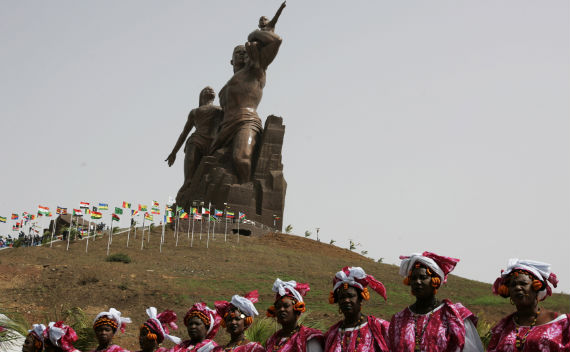Guest Post: Reflections on West Africa
August 9, 2011 4:56 pm (EST)
- Post
- Blog posts represent the views of CFR fellows and staff and not those of CFR, which takes no institutional positions.
More on:

This is a guest post by Mohamed Jallow. He is an interdepartmental associate at the Council on Foreign Relations and graduate of the CUNY Colin Powell Center for Policy Studies. Mohamed came to the United States as a refugee from Sierra Leone in 2003.
I recently returned from a three-country tour of West Africa. It was my first trip back since I left in 1999, when the Charles Taylor-backed Revolutionary United Front (RUF) invaded my home of Freetown, Sierra Leone. My recent trip took me to the Gambia via Senegal, and then to Sierra Leone, marking an emotional and exhilarating homecoming. Much more than that, the trip was an opportunity to reacquaint myself with the struggles of a continent I hold dear and to assess the changes that have taken place since I left.
My first destination was Dakar, Senegal, where in 2003 I boarded a Tap Air Portugal flight to the United States after fleeing the madness in Sierra Leone. At the Dakar airport where the imposing African Renaissance Monument greets visitors from a mountaintop overlooking the capital, one gets the feeling of a continent and a country on the move. This country was and still is regarded as one of the few outposts of tranquility in a tumultuous region. While recent political issues regarding presidential succession and an economic crisis fueled by the global economic downturn have threatened that stability, these problems, from my initial assessment, appear to have been averted, and the economy is slowly growing again. Businesses are flocking to the country, and it has since replaced Ivory Coast as the economic hub of West Africa.
After a few days in Dakar, and a spine bending road trip through Senegal’s countryside, my next stop was neighboring Gambia, the smallest country on mainland Africa, dubbed the “Smiling Coast.” My initial impressions of the Gambia were how I imagined 1950s Stalin Russia, with pictures of the president everywhere. Back in 2002-2003 when I lived here, the Gambia was an insignificant outpost better known as a cheaper Caribbean for European tourists. Today, the country is a different place despite its share of governance issues. I could see noticeable improvements in infrastructure and the economy for a country that once boasted only one paved road, and an economy dependent on peanuts and foreign aid. The sheer number of cell phone companies and foreign banks competing in this tiny economy shows just how far the country has come from less than a decade ago.
Sierra Leone was the last stop on my trip. My most recent memory of Sierra Leone was being holed up in a corridor at home during intense fighting between RUF rebels and Nigerian soldiers acting under the umbrella of the Economic Community of West African States Monitoring Group (ECOMOG).
Since fighting ended in 2002, Sierra Leone has begun to recover, so much that I could hardly notice the physical scars of the war. Spending for development and anti-poverty measures has dramatically increased, evident through improved roads, schools, and health care facilities. Corruption is down and economic activity is booming again. While Sierra Leone continues to rely on foreign assistance, the country is indeed making progress towards self-sufficiency, and I could see that in the enterprising spirit of the people.
Besides the good food and spoiling attention I received from family and friends, this visit was a real eye opener. While there is still the poverty, corruption, and political issues, these countries are no longer stagnant as they had been when I left them a decade ago. They are making considerable strides both economically and politically. The people in all these countries seem to have realized that their destiny should be to make their own countries better so people like me won’t have to leave.
More on:
 Online Store
Online Store
